

Looking to take a career leap or prepare for your first freelance project management job? This is a great place to start. 🏁
With a solid strategy and the right project management tools, you too can become an experienced project manager, be your own boss, and manage any project that comes your way like a true professional.
What is Freelance Project Management?
Let’s start with the basics.
A freelance project manager is a free-standing professional who offers project management services. With their strong management skillset and problem-solving skills, they help businesses oversee the entire project from start to finish, coordinate different teams and parties toward a common goal, and ensure all project requirements are met on time.
What sets them apart from traditional project managers is their mode of employment. Some freelance project managers work on their own for different clients on a contractual basis. Meanwhile, other freelancers may partner up with a third party, like an agency or platform, to mediate their work with clients.
Benefits of Freelance Project Management
Before we move on to the challenges ahead, let’s talk about what’s in it for you. Why should you consider becoming a freelance project manager in the first place?
As with all career paths, it comes down to finding the work arrangement that “works” for you. Project management can be stressful.
It requires crisis management skills and a great deal of patience. But if you’re keen on your freedom, setting your own hours, and love tackling different aspects of the workflow at the same time, it will be very much worth the ride.
1. Flexibility and autonomy
In the past few years, millions have quit their traditional jobs to seek alternatives allowing them to work and live on their terms. Freelancing and alternative work relationships are on the rise.
Freelance project manager jobs give you the freedom to decide when, where, and how to work. Having autonomy in your career not only enriches your work life but also your overall quality of life.
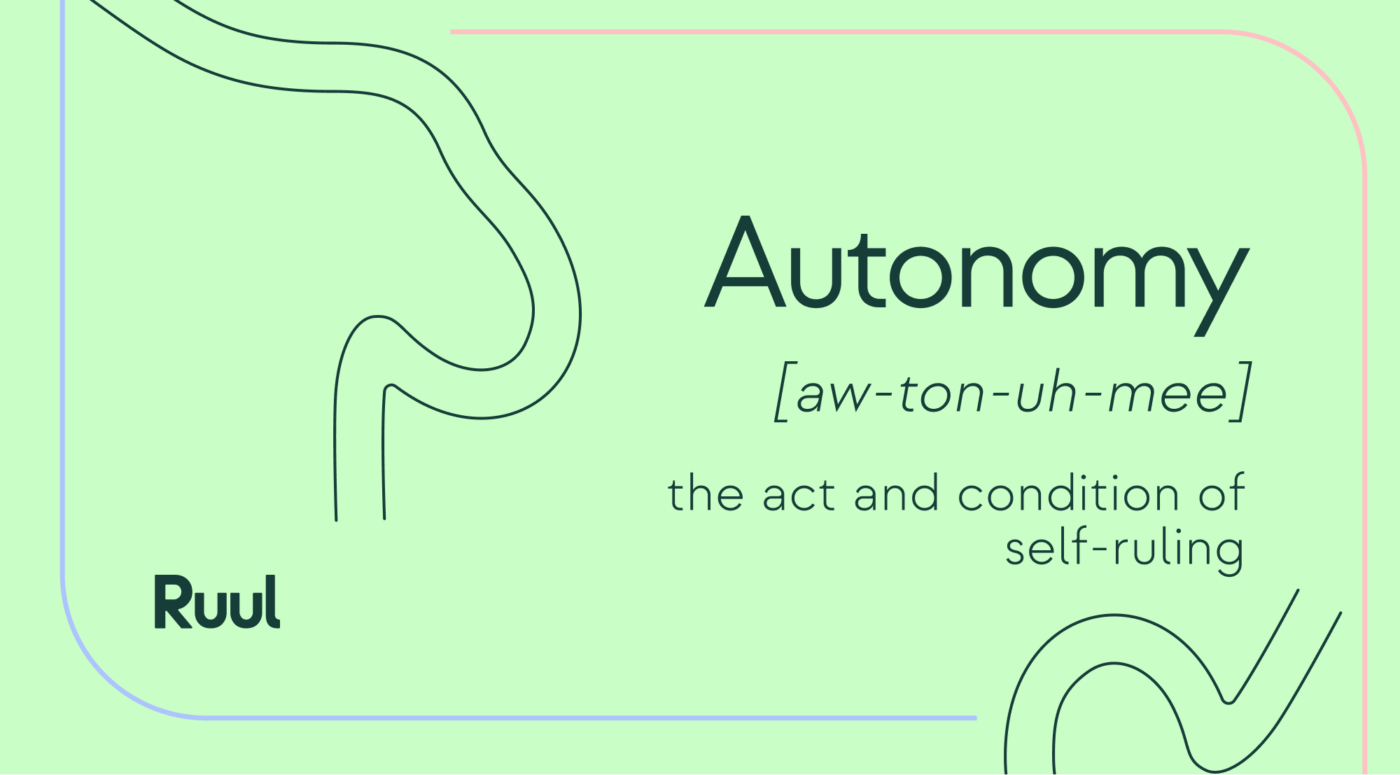
2. Financial independence
Working as a freelance project manager means you get to decide on your rates and pricing model. Typically, your rates will differ according to your professional level.
Whether you’re a novice or a senior project manager, this career can allow you to pick the best arrangement and raise your rates according to your own life circumstances.
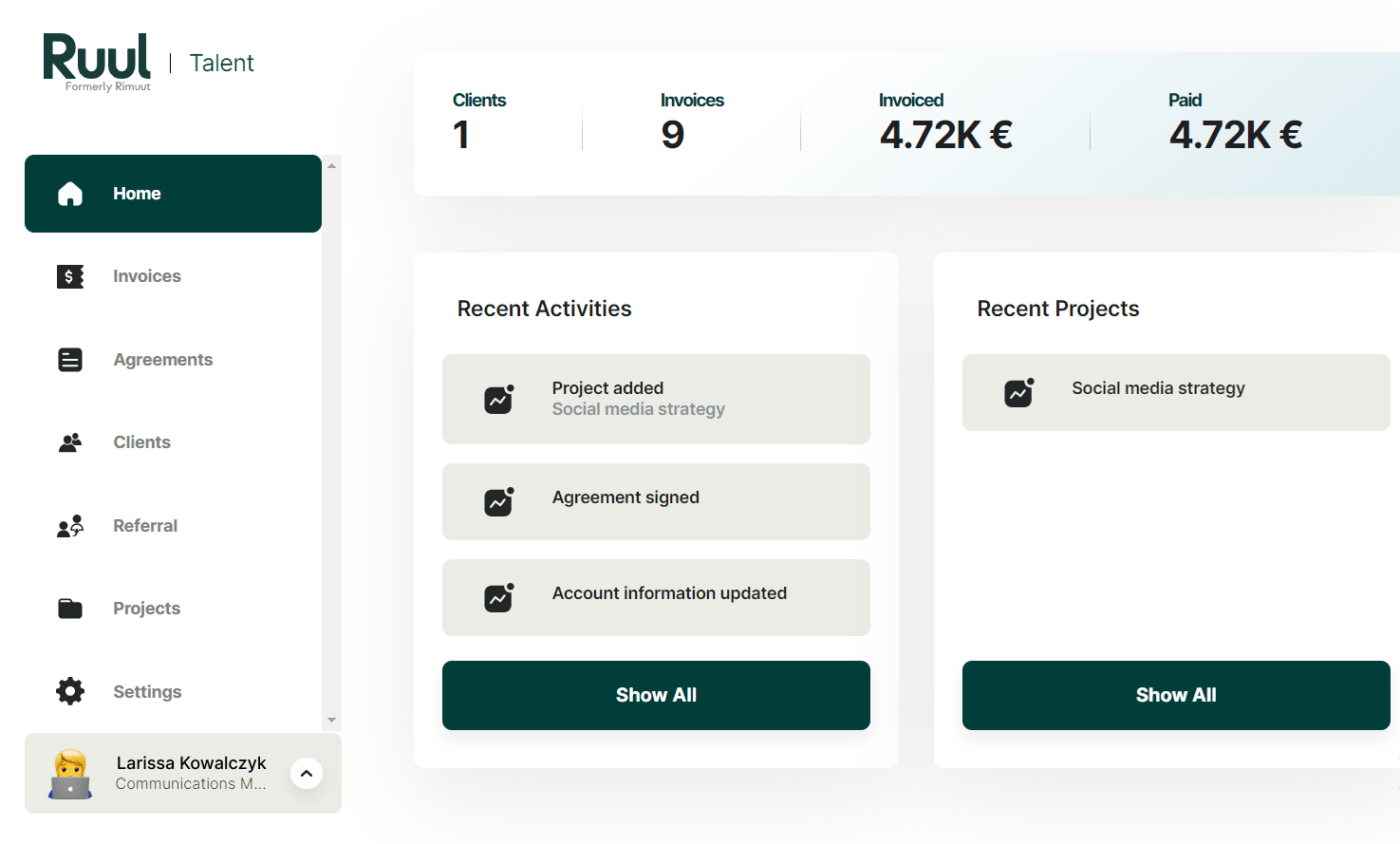
3. Opportunities to broaden your network
Freelance project management allows you to connect with a greater number of professionals. Surely, you will have your areas of expertise and “niche.” But as a freelance project manager, you can always dip your toes into new industries and expand your business in any direction.
As you get to work closely with people in different positions, this will also allow you to broaden your horizons about the job market. Who knows, maybe your next big career shift is one meaningful connection away.
4. More variety of work
When you are an incorporated project manager working for a certain company, the scope of your work is limited to their line of products/services. In freelance project management, you can pick up different projects in different industries.
This allows you to explore your talents and interests without restrictions. As you hone your skills and gain experience in different projects, more opportunities will come up.
Here is a very common experience among project managers who work solo: They come from a specific educational background. But they end up dabbling with many diverse niches that they wouldn’t have imagined back in college.
Challenges of Freelance Project Management
We have covered the perks that freelance project managers have, and by now you might be sold. Now let’s look into the potential challenges along the way.
1. Team alignment and coordination
As a freelance project manager, you are often responsible for coordinating different teams. This can mean making multiple time zones and multiple schedules work for a common purpose. With so many moving parts, team alignment can pose a challenge.
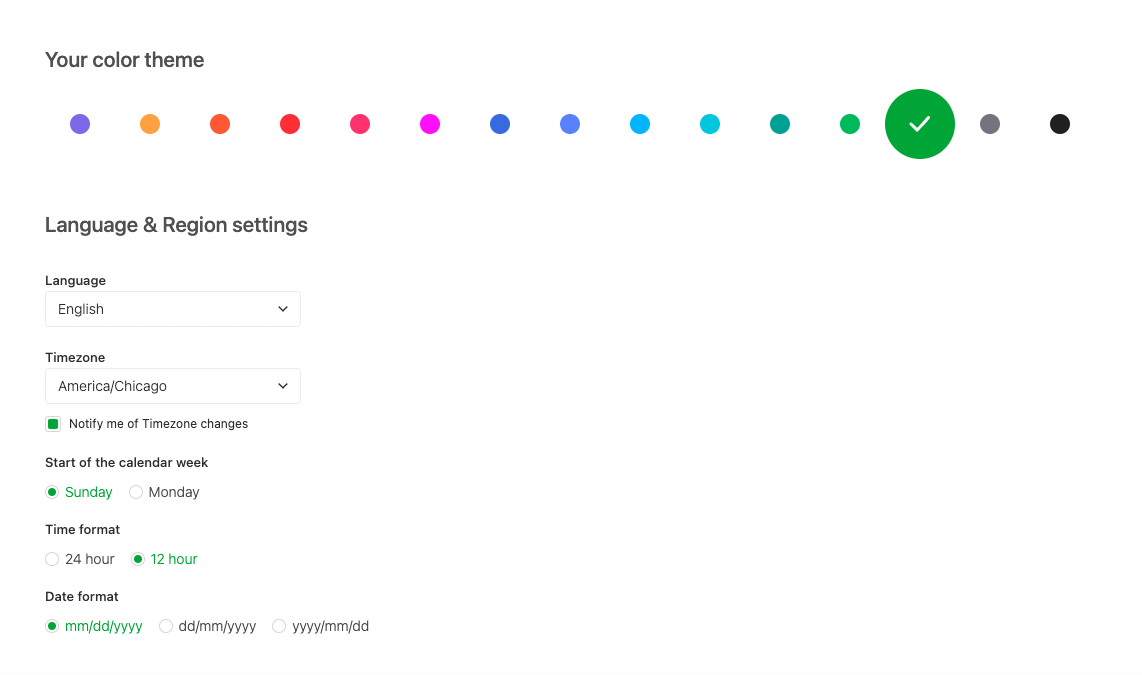
The secret to a healthy “whole” is healthy parts with healthy relations. Each team member should know their role and responsibilities so that no detail goes unnoticed along the way. Of course, you also need a solid medium for interactive remote collaboration to get work done.
2. Keeping up with deadlines
Paradoxical as it may sound, deadlines are the lifeline of a project. Each minute task and big milestone should have a deadline. With so much work to be done, the project manager will have to track the deadlines and ensure the responsible person can meet them.
The human memory can only hold a certain amount of information. When you’re in freelance project management working with multiple clients, you may find it challenging to keep up with the exact dates for each deliverable. Using the right tools and techniques to sort through different tasks and their due dates makes deadlines easier to manage.
3. Defining goals and deliverables
Here is the ultimate goal in freelance project management: To achieve the business outcomes the clients set out for. But to get there, you will need to break down the actionable items into small meaningful chunks.
Well-defined deliverables ensure everyone involved is on the same page. They also help measure the overall success and course of work. Think of it as checkpoints for a long road trip. For this matter, use a project management tool with a goal-setting and tracking feature.
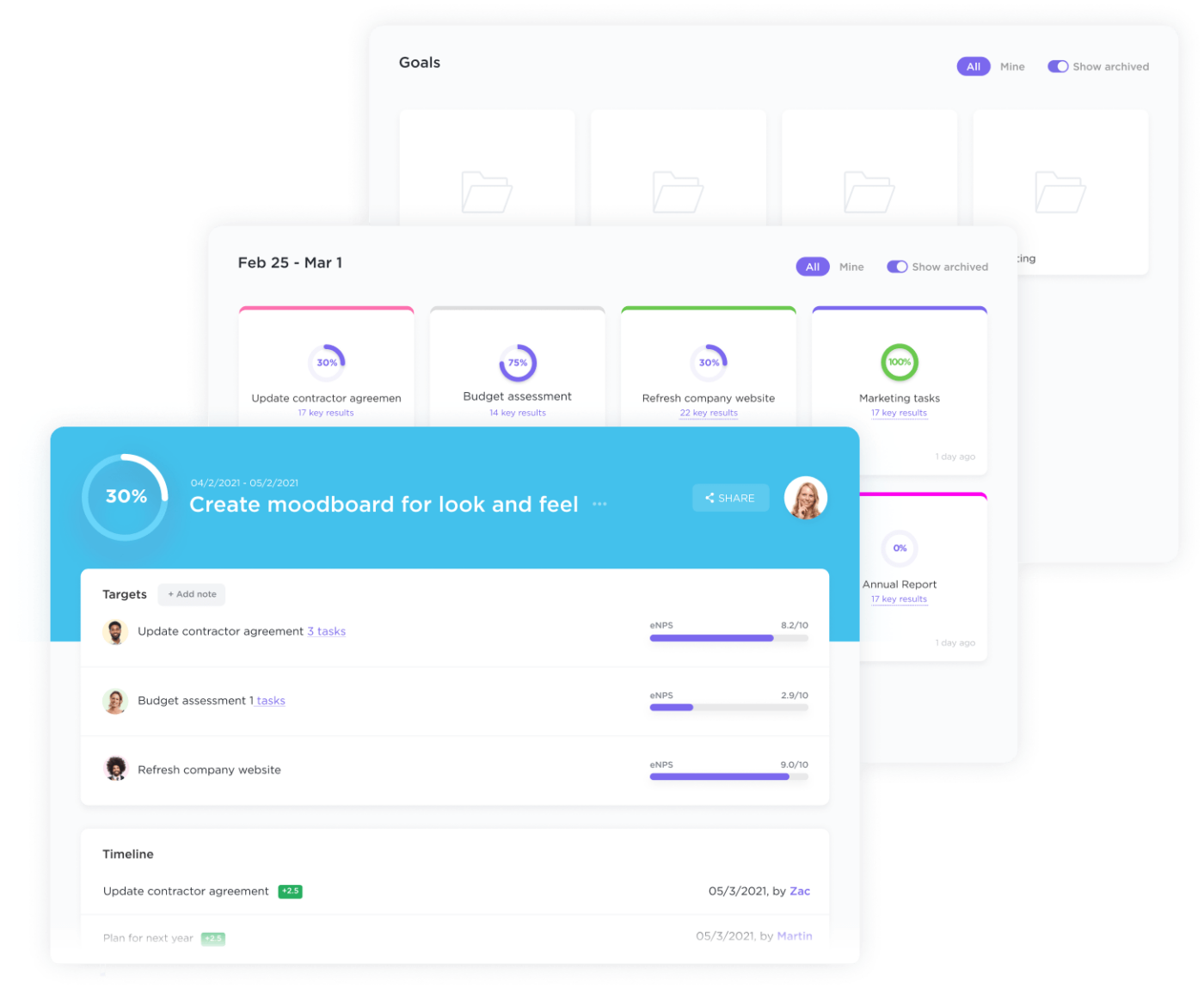
4. Organizing a seamless workflow
The cycle of work necessary for a project–unfortunately–won’t flow by itself. This is where the project manager comes in. After you set forth the necessary steps, i.e. the deliverables and goals, this is the part when you figure out how the goals will be tackled. The course of action, so to speak.
Each project has unique demands and challenges. However, when you master workflow organization, you can adapt and repurpose your approach for each scenario. For freelance project management, you will need to answer a few basic questions, such as the following:
- Which tools will you use?
- How will you distribute tasks and inform the assignees?
- Who will keep track of individual progress, and how?
- What works for the specific team and situation, and what can be improved?
- When a problem arises, how will the feedback and improvement process unravel?
5. Avoiding scope creep
Behold, the ultimate nightmare of project managers, the eerie notion haunting their carefully constructed plans: scope creep.
Scope creep is when the scope of the project is expanded or changed along the way. This introduces an extra workload to everyone involved and requires a shift of resources and replanning. Quite spooky, isn’t it?
Especially in freelance project management, as a solo talent working with different clients, the responsibility to ward off scope creep falls on the project manager. You must carefully construct scope statements and communicate clearly with stakeholders and clients throughout the project, ensuring everything is well-defined and structured.
6. Disengaged stakeholders
Stakeholders are all individuals, organizations, or groups with potential influence over the project activities and outcomes. This includes everyone from team members, sponsors, and leaders, to customers and vendors.
Obviously, not all of them have to be directly involved throughout the project. However, you still need to maintain transparency and keep them informed and interested. Balancing and prioritizing the demands and feedback of stakeholders is integral for successful freelance project management.
7. Scattered tools and documents
They say it takes a village to raise a child. To “raise” a project baby, it takes a village’s worth of documents, folders, data, tools, and platforms. With so many competing digital platforms, it can be dizzying to navigate between tabs and software.
Where did you put that client list? What about that content calendar? What about your meeting schedule and those Google Meet links? Your poor computer is making that loud fan noise again, isn’t it?
By choosing a project management platform with plenty of integrations, you can streamline your entire workflow in one place and reduce the time you spend recklessly going back and forth across tabs.
Bonus: Time-Tracking Software for Freelancers
Tips for Successful Freelance Project Management
Project management is no rocket science as long as you are willing to put in the work. With the right tools and tips up your sleeve, any project will be well on its way to success.
1. Use a RACI Chart to coordinate teams
One way to ensure alignment across teams is by defining the roles and responsibilities of each member, and you can use a RACI chart (or RACI matrix) for this purpose.
RACI is the acronym for Responsible, Accountable, Consultant, and Informant–different levels of accountability among the team.

Use ClickUp’s Whiteboard feature to create your own RACI chart or use a pre-made RACI template to visually outline different project activities, denote the extent of responsibilities across teams, and hit the ground running faster.
Check out these freelancer templates!
2. Track deadlines through calendars
Multiple deadlines and multiple projects? No problem at all. Using free project management tools like ClickUp can help you easily sort through multiple aspects of a project–or multiple aspects of multiple projects!
You can assign each task a deadline and use ClickUp’s Calendar view to visualize and manage deadlines. Using the filters and view modes, navigating deadlines will be easy as a breeze. You can even schedule and launch meetings with Google Calendar and Zoom integrations. Talk about a one-stop shop!
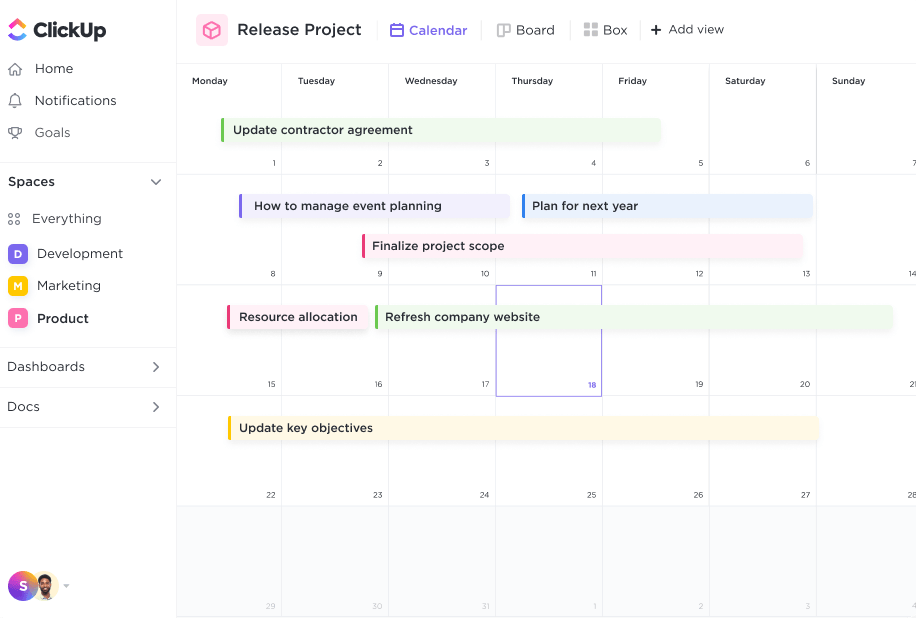
3. Manage tasks with a Gantt Chart or Kanban Board
Task planning and management are the backbones of freelance project management. Project managers need to choose the right method for task management to ensure everything is moving smoothly and set the project up for success.
Currently, the most popular methods for organizing your tasks as a project manager are Gantt charts and Kanban boards. Each tool has its unique advantages and uses, but the ultimate decision depends on what you need.
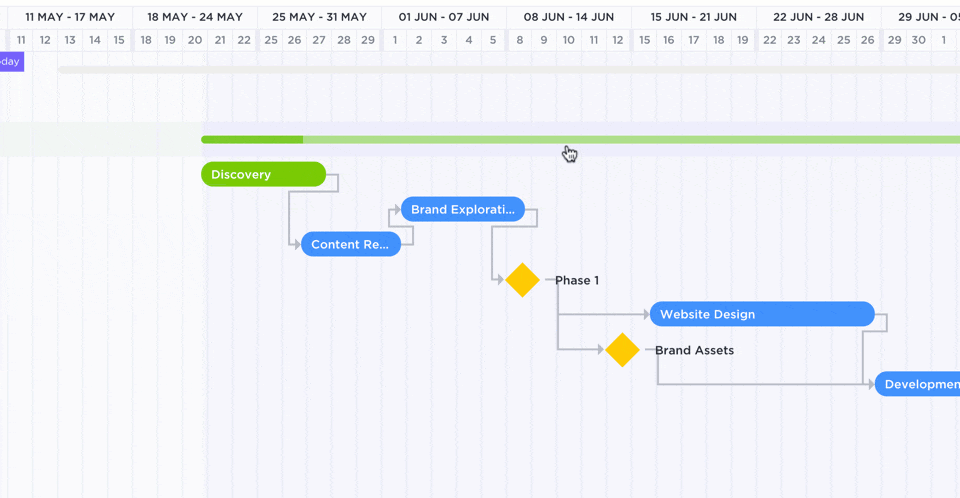
Gantt charts present a timeline view of all the tasks and activities and ideally would show details such as dependencies and milestones. The horizontal bar view helps visualize the progress and gives a good overview of the project timeline.
Kanban boards, on the other hand, allow you to group tasks into columns according to their statuses. The default options are “to do,” “in progress,” and “done,” but you can change and adapt them according to your needs. Kanban boards are especially useful for the Scrum approach, as it helps easily go over what is done and what needs to be done.
4. Break down objectives into project milestones
In freelance project management, you are responsible for keeping track of where you’re headed and your current status. A great way to stay on top of your progress is by using project milestones. Especially if you are getting paid per milestone, this is essential for sustaining your business.
Project milestones can be set according to the phases of a product cycle. For example, the ideation and brainstorming phase would be milestone one, working on a prototype would be milestone two, testing the prototype and collecting feedback would be milestone three, and the launch and promotion stage would be milestone four.
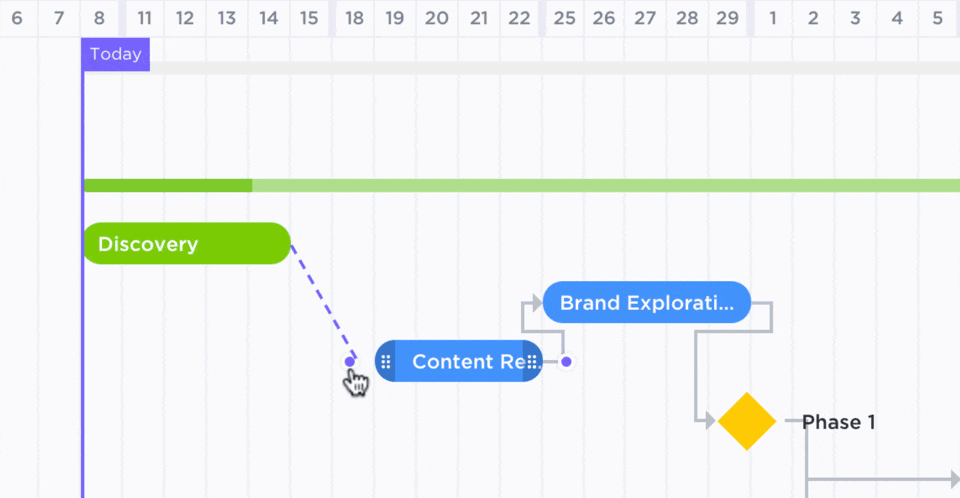
Alternatively, you can set OKRs and business outcomes as milestones. For example, reaching a certain target audience or generating so and so in revenue.
5. Set a communication plan for stakeholders
Whether they are directly involved in the project or indirectly affected by the outcomes, engaging stakeholders is an essential responsibility for project management. To maintain transparency and keep them engaged, you should set up a communication plan.
For each stakeholder, you will have to come up with a different communication approach. Using a feature like ClickUp’s custom access rights allows you to manage who sees which documents and keeps sensitive information secure.
ClickUp’s remote collaboration options also allow you to walk internal stakeholders through project statuses and enable them to comment directly on the relevant materials. Another helpful feature is integrations, which we will touch upon in a minute.
6. Opt for a project management tool with native integrations
An all-in-one project management tool should eliminate going back and forth between apps and tabs as much as possible.
ClickUp’s native integrations allow just that–seamless integration of different apps and tools in one place. But also, you get to unlock different actions. With meaningful automation and features navigating the project cycle becomes much easier.
Master Freelance Project Management With the Right Tools
Working as a freelance project manager can be challenging as you’re managing different projects at once. But with the right tools like ClickUp, a free project management software, you’ll be equipped with everything you need to become an experienced project manager.
ClickUp offers hundreds of customizable features to help you with manage projects of any kind and create functional systems that’ll enable you to delegate work, track project progress, and promote seamless collaboration and team management to ensure successful completion.
Coupled with Ruul as your compliance and finance partner, establishing and growing your freelance business successfully becomes easy with a few clicks.
Guest Writer:

Bilge Özensoy is a former aspiring academic and freelancer now pursuing all things content, exploring potentials of new media under Ruul.


